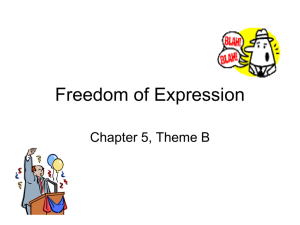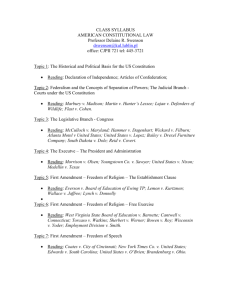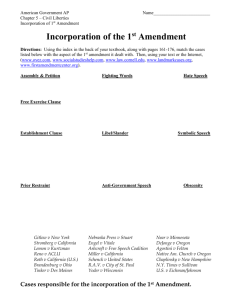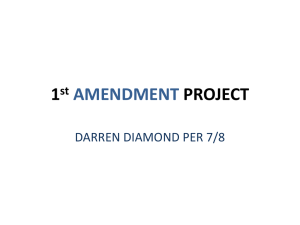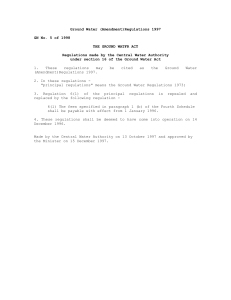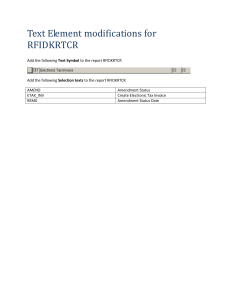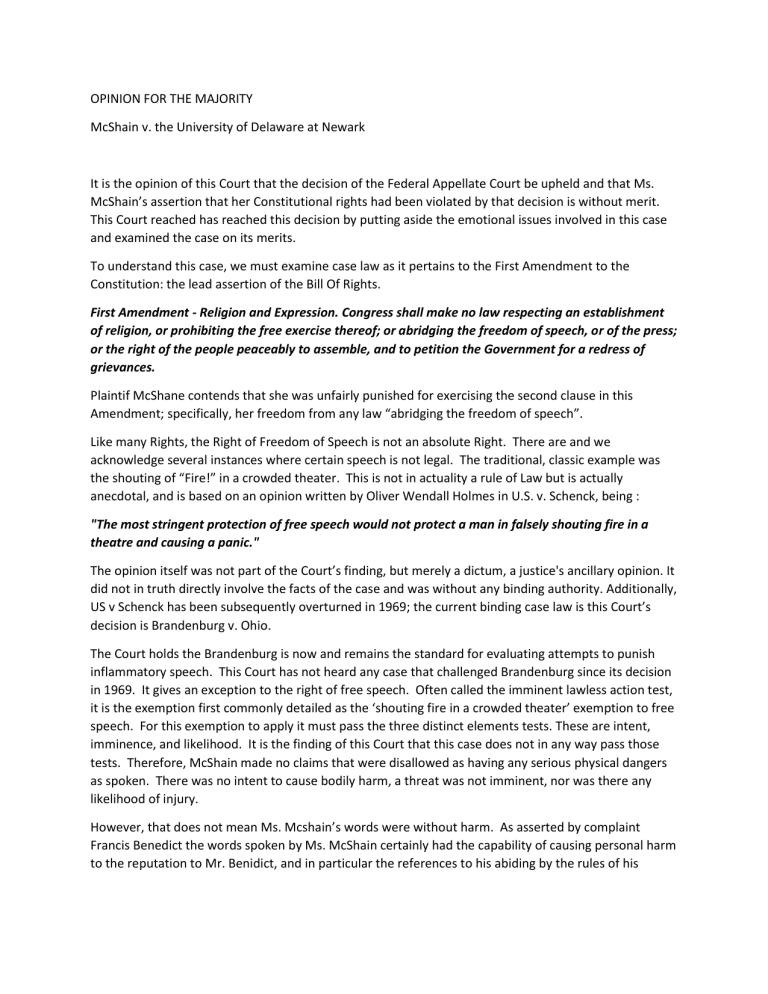
OPINION FOR THE MAJORITY McShain v. the University of Delaware at Newark It is the opinion of this Court that the decision of the Federal Appellate Court be upheld and that Ms. McShain’s assertion that her Constitutional rights had been violated by that decision is without merit. This Court reached has reached this decision by putting aside the emotional issues involved in this case and examined the case on its merits. To understand this case, we must examine case law as it pertains to the First Amendment to the Constitution: the lead assertion of the Bill Of Rights. First Amendment - Religion and Expression. Congress shall make no law respecting an establishment of religion, or prohibiting the free exercise thereof; or abridging the freedom of speech, or of the press; or the right of the people peaceably to assemble, and to petition the Government for a redress of grievances. Plaintif McShane contends that she was unfairly punished for exercising the second clause in this Amendment; specifically, her freedom from any law “abridging the freedom of speech”. Like many Rights, the Right of Freedom of Speech is not an absolute Right. There are and we acknowledge several instances where certain speech is not legal. The traditional, classic example was the shouting of “Fire!” in a crowded theater. This is not in actuality a rule of Law but is actually anecdotal, and is based on an opinion written by Oliver Wendall Holmes in U.S. v. Schenck, being : "The most stringent protection of free speech would not protect a man in falsely shouting fire in a theatre and causing a panic." The opinion itself was not part of the Court’s finding, but merely a dictum, a justice's ancillary opinion. It did not in truth directly involve the facts of the case and was without any binding authority. Additionally, US v Schenck has been subsequently overturned in 1969; the current binding case law is this Court’s decision is Brandenburg v. Ohio. The Court holds the Brandenburg is now and remains the standard for evaluating attempts to punish inflammatory speech. This Court has not heard any case that challenged Brandenburg since its decision in 1969. It gives an exception to the right of free speech. Often called the imminent lawless action test, it is the exemption first commonly detailed as the ‘shouting fire in a crowded theater’ exemption to free speech. For this exemption to apply it must pass the three distinct elements tests. These are intent, imminence, and likelihood. It is the finding of this Court that this case does not in any way pass those tests. Therefore, McShain made no claims that were disallowed as having any serious physical dangers as spoken. There was no intent to cause bodily harm, a threat was not imminent, nor was there any likelihood of injury. However, that does not mean Ms. Mcshain’s words were without harm. As asserted by complaint Francis Benedict the words spoken by Ms. McShain certainly had the capability of causing personal harm to the reputation to Mr. Benidict, and in particular the references to his abiding by the rules of his church, in especially regarding his sexual behaviors, represent a very real slander to the reputation and character of Mr. Benedict. These accusations, if taken at their face, could clearly damage Mr. Benedict. Ms. McShain has argued that the State of Delaware has encroached on her Constitutional Right as guaranteed to her by the 14th Amendment. While the 14th Amendment does indeed state: No state shall make or enforce any law which shall abridge the privileges or immunities of citizens of the United States; nor shall any state deprive any person of life, liberty, or property, without due process of law; nor deny to any person within its jurisdiction the equal protection of the laws. But the inability of a State to enforce certain standards has long been a problem. To address this conflict, in Gertz v. Robert Welch, Inc., of 1974 the Supreme Court invited the states to establish their own standards of liability for defamation of private persons, so long as these standards did not fall below a federal constitutional minimum. We find that in this instance Gertz does apply; that the State of Delaware is indeed within its rights when it’s State University adopted a ban on verbal assault in its “No Hate Speech” code. In doing so this Court does not take the 1st Amendment guarantees lightly. Because American colonists attached great importance to the freedoms of speech and press, and the original English law of defamation underwent modification here early in the post-independence period. However, these ideals have been tested by the law of defamation, specifically the actions of libel and slander, and contains many nuances, anomalies and peculiarities. This Court has wrestled with these concepts for many years. Certainly, parties can be damages by frivolous or inflammatory words. At this time such speech is tested against t and is considered resolved by the case of New York Times Co. v. Sullivan. This case heard by this Court was based on a full-page ad appearing in the New York Times that claimed the arrest of Rev. Martin Luther King, Jr. for perjury in Montgomery, Ala., was part of a campaign to slander King. They felt it would destroy King's efforts to integrate public facilities and encourage blacks to vote. In response, Montgomery city commissioner L.B. Sullivan filed a libel action against the newspaper and four black ministers listed as endorsers of the ad, claiming that the allegations against the Montgomery police defamed him personally. In this case, the Court in 1964 ruled that parties claiming damages must prove that a “reckless disregard” for the truth or “malice aforethought” motivated the publication or broadcasting of information that was deemed defamatory to the plaintiff. In this case McShain may be in fact slander rather than libel but in both cases the words were inflammatory to the point of damaging. But the most compelling argument made by Ms. McShain is that per Chaplinsky v New Hampshire, the “fighting words” doctrine as decided in 1942. In this case Chaplinsky, a devout Jehovah’s Witness, was distributing religious literature. A group of people objected to Chaplinsky’s speech, particularly his calling other religions “a racket.” They complained to the city marshal, James Bowering. Marshal Bowering had warned Chaplinsky earlier that his speech was insulting and annoying to passers-by as well as listeners. Bowering allegedly told the crowd that Chaplinsky was within his rights under free speech and should be left alone. But when Bowering left, a man punched him and then many others joined in. When Bowering again responded to the mini-riot, Chapinsky, on a public street, called Bowering a “God damned racketeer" and "a damned Fascist and the whole government of Rochester are Fascists or agents of Fascists". A local newspaper recapped the event with the headline: “Chaplinsky Beaten by Irate Mob" In this case, New Hampshire had passed a statute for using offensive language towards another person in public: “No person shall address any offensive, derisive or annoying word to any other person who is lawfully in any street or public place, nor call him by any offensive or derisive name, nor make any noise or exclamation in his presence and hearing with intent to deride, offend or annoy him, or to prevent him from pursuing his lawful business or occupation.”1 Chapinsky was found guilty of disobeying the statute. Chapinsky’s attorneys argued the Statute unconstitutional under his 14th Amendment protections as has Ms. McShain in this case. After appeals by Chapinsky brought his case to the Supreme Court, the concept caused the Court to deal with a different and popular type of verbal combat, a type including the lewd and obscene, the profane, the libelous, and the insulting or fighting words: those which by their very utterance inflict injury or tend to incite an immediate breach of the peace. Chapinsky contended that the statute he violated was invalid under the 14th Amendment because it placed an unreasonable restraint on freedom of speech and because it was vague and indefinite. But as previously stated and even allowing the broadest scope to the language and purpose of the Fourteenth Amendment, it is well understood that the right of free speech is not absolute at all times and under all circumstances. These circumstances must include for the public good those which, by their very utterance, inflict injury or tend to incite an immediate breach of the peace. It is the decision of this Court that Chapinsky applies equally to McShane: that the State of Delaware was as capable as the State of New Hampshire to pass laws to preserve the peace but more importantly to avoid a case where public speech would cause physical harm or incite a riot. “Fighting words” are not to be construed as free speech. The conviction of Ms. McShain under these terms is affirmed.
